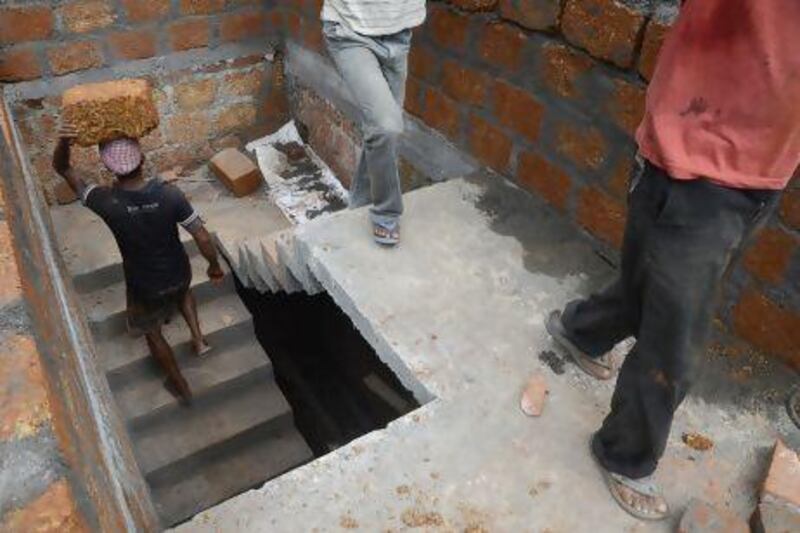NEW DELHI // At least 80 trains carrying about 120,000 employment-seeking Indians arrive in the southern state of Kerala each week.
And the annual remittances being sent by the 2 million non-Keralite workers in the state, most of whom hail from Orissa, West Bengal and Bihar, total 1.75 billion rupees (Dh119m) - or 4 per cent of Kerala's gross domestic product.
These are among the notable findings of a recently issued report on population flows into Kerala from elsewhere in India.
Kerala is widely known for exporting skilled labour, with about 2.5 million Keralites living abroad, many in Arabian Gulf countries.
The findings were an eye-opener to the researchers of the Gulati Institute of Finance and Taxation in the state's capital, Thiruvananthapuram who carried out the study, titled Domestic Migrant Labour in Kerala.
"The influx of workers was unexpected," said CS Venkiteswaran, one of the three investigators. "The large number came as a surprise to us."
The investigators found that the migrants were mostly men between the ages of 18 and 35. They earn 300-500 rupees (Dh20-34) a day working as labourers on construction sites, electricians and carpenters.
Bulbul Islam is one of the good-luck stories. Four years ago, he travelled from Murshidabad in West Bengal to Perumbavoor in Kerala. The journey took four days.
"I was willing to do anything, because I knew even the lowest of pay would be more than what I would be able to make back home," said Mr Islam, 30.
Since then, he has risen from menial labour on a construction site to becoming a carpenter. Last year, he sent home about 6,000 rupees (Dh408) home a month.
According to some experts, workers like Mr Islam are filling jobs that expatriate Keralites have left behind or those who remained have no desire to do. Kerala has an ageing population that "does not want to carry bricks to build anything", said Irudaya Rajan, chair of the research unit on international migration at the Centre for Development Studies in Thiruvananthapuram, Kerala.
"Migrants coming into Kerala are the backbone" of Kerala's growing economy, Mr Rajan said.
Most of the estimated 2.35 million non-Keralite Indian workers who arrive in the state each year seek employment in restaurants, hotels, construction sites and other jobs that make up the so-called "informal sector".
The Gulati Institute report was commissioned by the government of Kerala. A team of investigators led by Mr Venkiteswaran, D Narayana and MP Joseph fanned out to railway stations, housing complexes and towns in Kerala where the migrant workers lived, including Perumbavoor, which is known for its timber industry.
"The government was concerned about the social welfare of these workers, and there were concerns among the local population about their health," said Mr Venkiteswaran.
The workers live in poor conditions, in crowded housing and without any access to health care. That has raised concerns about the spread of disease. the report noted.
"Kerala had eradicated some diseases like malaria, so it is interesting to see when malaria makes a comeback in the state, how the government will handle it," Mr Venkisteswaran said.
The predicted doubling of migrant workers in Kerala in the next decade poses other challenges, too.
They are accused by some native Keralites of being responsible for a rise in crime. There is also friction between the police and workers, who claim they are regularly harassed by the police for not carrying local identification papers
Despite some of the burdens that the influx of non-Keralite Indians might present, there is an obligation to tend to their needs, said Mr Rajan, of the Centre for Development Studies.
"We have to look after them," he said. "See them as assets, not liability. If we don't protect our migrants, then what right do we have to ask other countries to look after our people abroad?"





